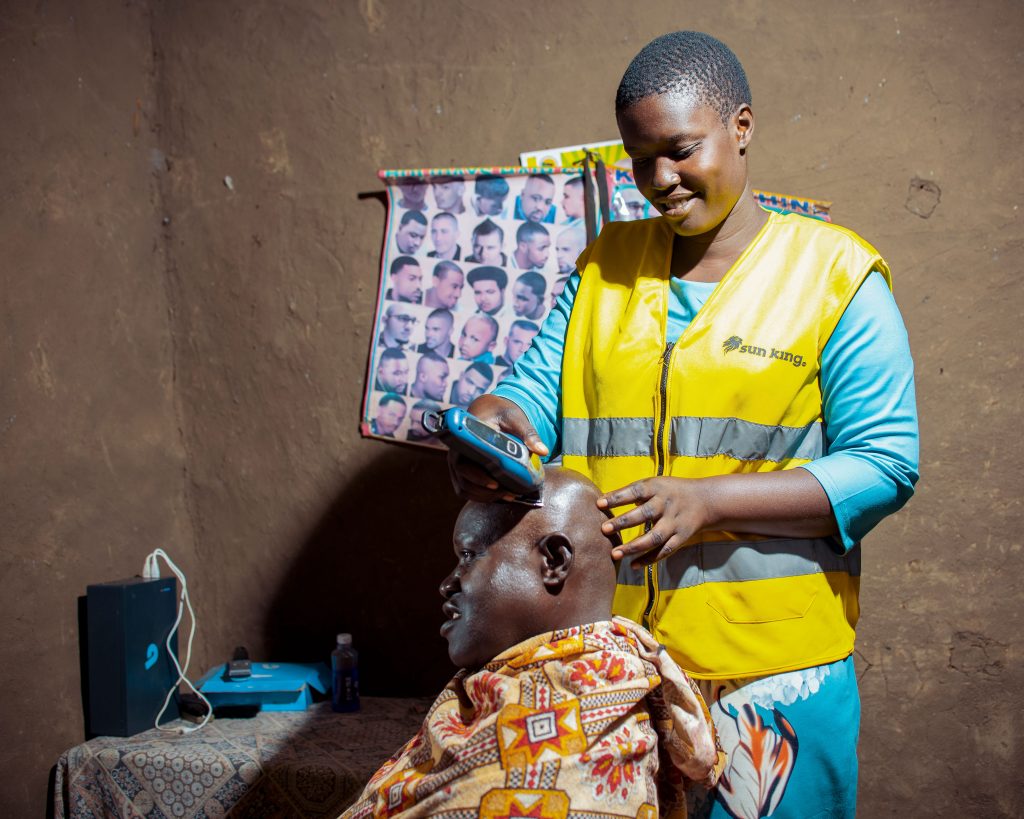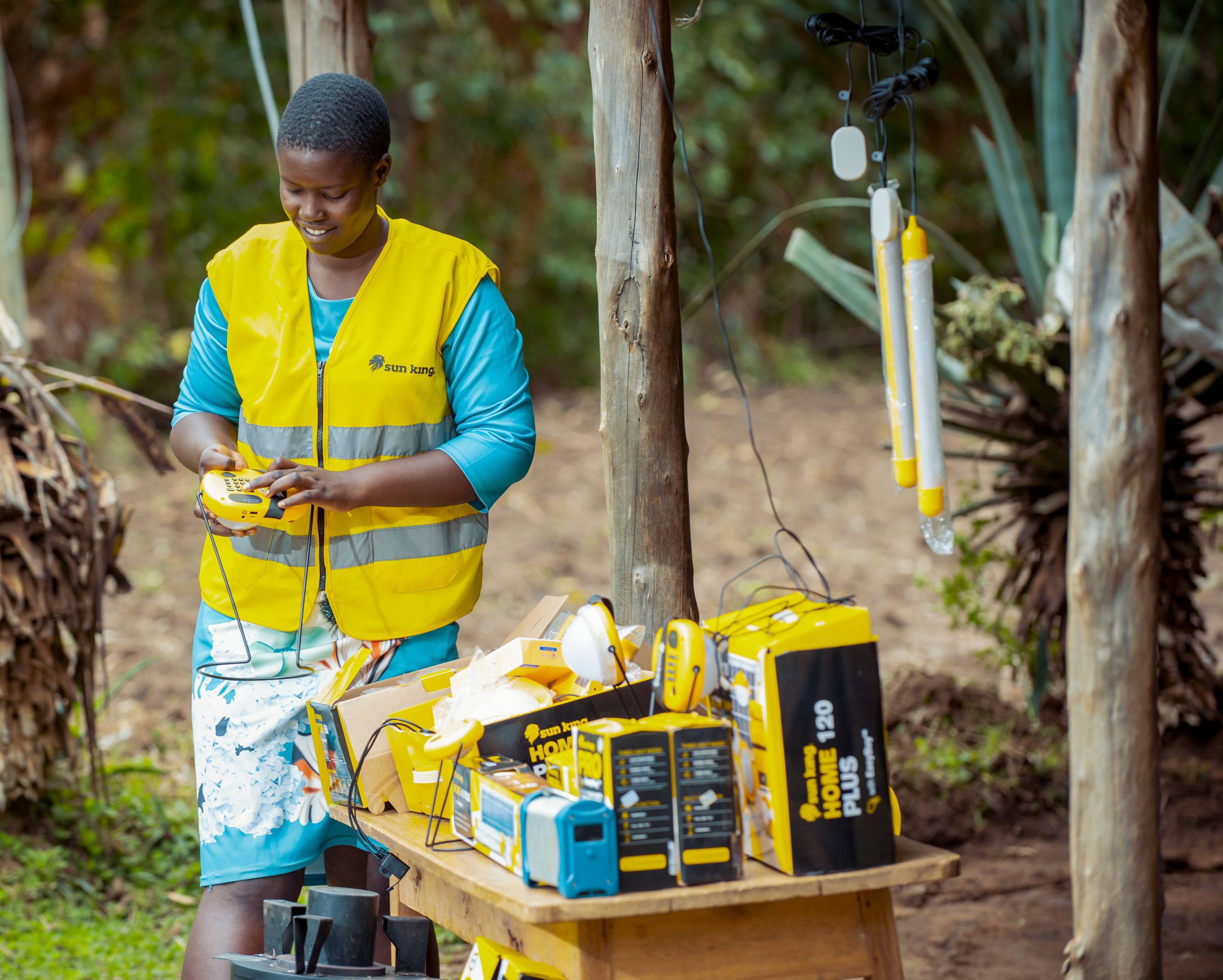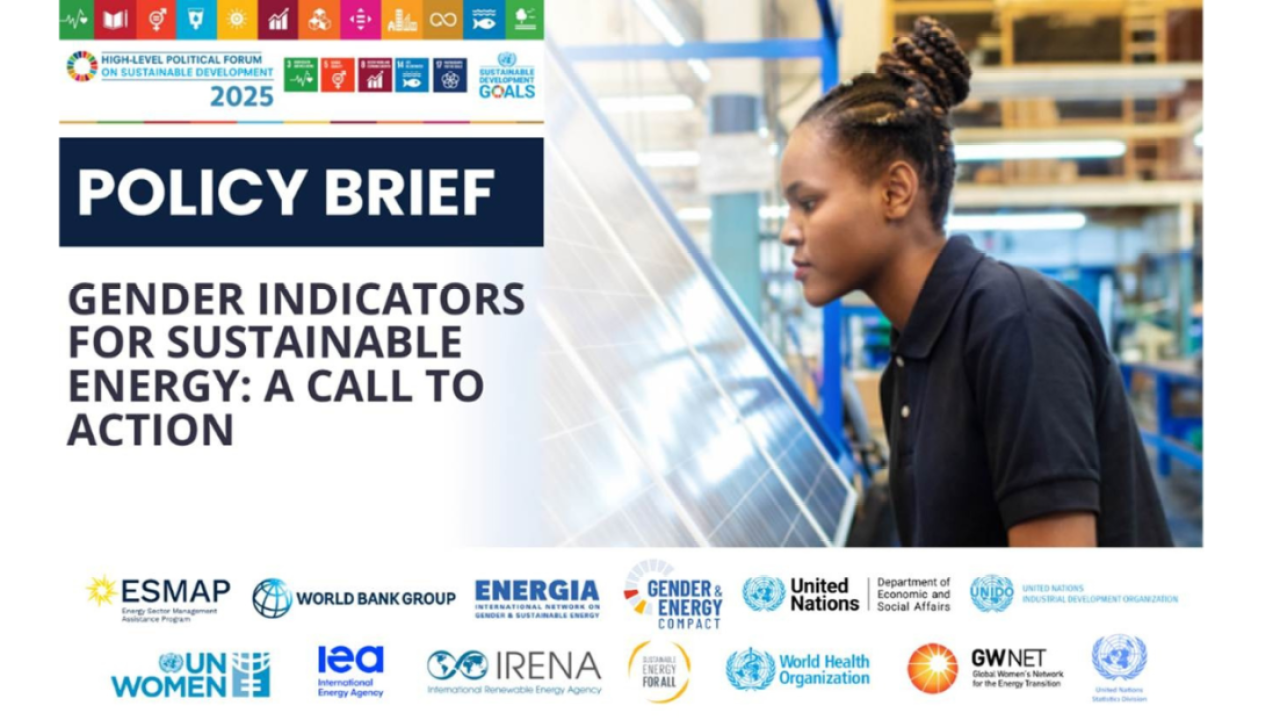Dorcas Mutashi, 26 years old is an entrepreneur selling solar products, improved cookstoves and pellets. Her business is located at Kewa village, Lugari sub-county, Kakamega County. Before joining the clean energy business, Dorcas used to work as a casual labourer with Kenya Highways Authority (KENHA) as a cleaner. Due to substandard payment, Dorcas quit her cleaning job in February 2019 and joined Sunking Company as a scout.
“Working as a scout was challenging since the agent I worked under, used to delay my payments or sometimes not pay me at all. This made my life difficult as I wasn’t able to sustain my needs and those of my family”, narrates Dorcas.
In 2019, Dorcas was referred by a friend to join Practical Actions’ WEEK Phase Two project where she was taken through trainings on business development skills and agency empowerment.
“This was my first training to attend and my perspective about business changed. In the past I used to know business is about making sales and getting money for household use but I came to learn about investing in other businesses that can help me to earn extra income”, explains Dorcus.
Before the COVID-19 pandemic, it was easy for Dorcus to market her solar products by taking into account the various marketing strategies she had been trained on by the project, such as use of flyers and door to door marketing. Through this, her income would total up to averagely Ksh. 30,000 (≈ 257 USD) each month, enabling her to not only provide for her family but also take care of her parents and pay for her son’s school fees.
However, Dorcus’ business started facing challenges when the pandemic kicked in the country and the government through its Ministry of Health issued guidelines such as ban of public gatherings especially at the marketplace so as to help curb the spread of the virus. The solar company she worked under also faced limited stock supply as a result of border closure, so her only hope relied on installations that she had done before the pandemic that were being paid in instalments.
“My monthly income dropped to Ksh. 9000 (≈ 77 USD) per month and this greatly affected my family’s well-being. At a particular period, I was forced to cut down on the quantity of food I would buy so as to ensure that the little I earned was able to sustain us through-out the month”, narrates Dorcus.
In the month of May, 2021 Dorcas business rose again after she received Ksh. 21000 (≈ 180 USD) COVID-19 solidarity fund; from the WEEK project’s funding donor-ENERGIA, that aimed at helping the project entrepreneurs get through the pandemic and adapt back to their various energy businesses. Dorcus was among the entrepreneurs who were affected by COVID-19 due to lack of solar stock for some period of time. Having five dependants including her parents, it was challenging for her to meet her family needs on a daily basis.
With the aid of the solidarity fund, Dorcus also purchased two solar powered shaving machines on a pay go payment scheme, and secured a shop within her home town which she converted into a phone charging hub and barbershop. The project team also linked her with Power Spot- a pellet producing company based in Kakamega where she managed to purchase five units of pellet cookstoves and ten bags of pellets for sale at a commission.

“Electricity access is a key problem that we face in this area. Often at times, when one needs to charge their phone, they are forced to go to Luandeti town which is located eight kilometres away and so when I received the solidarity fund, my thoughts revolved around how I would help address this challenge. Luck enough, I was able to get a shop going at Ksh.1000 per month and that’s how I ended up opening the barber shop”, explains Dorcus.
Through the WEEK project, Dorcus also received a smart phone which has since helped her to market her products using digital applications, such as Whatsapp, thus enabling her to get new customers from other counties, such as Bungoma and Uasin Gishu. Communication with her customers has also been made easy, allowing her to run the business efficiently.
I am available on phone throughout the day and this has made my business operations run smoothly especially when I am called to deliver either solar products or improved cookstoves or pellets to my customers
Six months down the line, Dorcus makes a total income of Ksh. 5000 (≈ 43 UD) per month from her barbershop and phone charging business. She has also entered into a partnership with five both day and boarding schools within her ward where she shaves the students at a fairly reduced price every weekend. Her solar, pellets and pellets improved cook stoves business is also being embraced well by her customers and so far, she has been making averagely Ksh. 40,000 monthly.
“My business has really grown and I can pay for the two shaving machines without struggle. I am also back to providing for my family fully; we no longer have to starve anymore.”
As Dorcus looks in the future, she hopes that she will be able to open up another shop at Chimoi market, along the Kakamega-Eldoret highway, where she will be displaying her Pico plus solar, improved cookstoves and pellets for sale. She also looks at expanding to selling other Improved Cook stoves such as jiko okoa, jiko kisasa and jiko uhai in order to meet her customers tastes and preferences.
The solidarity fund I received from the project was a great boost for my business and the pace has now been set for me to progress and grow my business to a company
This story has been developed by our partner Practical Action in East Africa as part of our Women’s Economic Empowerment Program.







